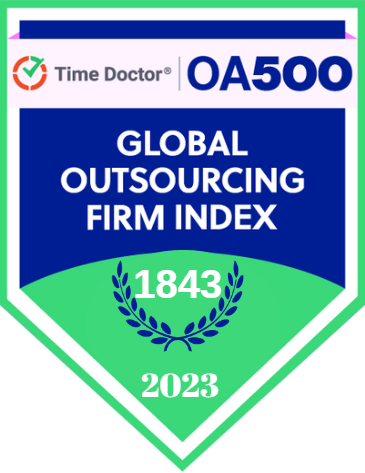Outsource Legal Document Review Services
For prudent legal decision-making, it’s imperative to have legal documents thoroughly reviewed by attorneys before finalizing agreements. Our Legal Document Review Services provide accessible and affordable options for meticulous document evaluation.
We ensure a comprehensive review by seasoned attorneys adept in the nuanced language of legal proceedings. Our rigorous process encompasses not just language comprehension but also a keen eye for potential risks and implications within the documents, safeguarding your interests effectively.


AWARD-WINNING OUTSOURCING COMPANY










Many law firms, independent lawyers, and companies outsource legal document review to specialist document review lawyers and legal process outsourcing companies like OBS to save time and focus on other important legal tasks. OBS has extensive experience reviewing litigation, investigations, mergers and acquisitions, government documents, internal/external audits, and other legal documents.
Legal document review and management can be a tedious, time-consuming, and expensive part of the litigation process. OBS offers efficient and comprehensive electronic and manual document review services, conducted by a team of experienced legal professionals, including attorneys and paralegals.
Get a FREE QUOTE!
Our systematic approach considers case strategy, efficiency, and quality control, ensuring a thorough and accurate review for all your proceedings, without any potential vulnerabilities for opposing counsel to exploit. Our team adheres to the guidelines and protocols established by the presiding court. With a team of adept document reviewers, we can handle any document volume, practice areas, complexities, budgets, languages, international laws, adversarial environments, and more, with speed and cost-effectiveness.
People Love Working With Us


Legal Document Review Services We Offer
Objective Document Coding
The metadata collected from the documents during the coding process can be uploaded to any review platform, increasing the searchability of the papers. This facilitates document identification during the review. Our firm has professional and dedicated lawyers who are well-versed in the intricacies of document encoding and have worked on multiple platforms.
Deposition Summaries
A deposition brief is a short document that reviews basic information about the witness, and pre-trial testimony, to help the legal team prepare. It provides an overview so people don’t have to read the entire certificate history to find the most essential parts of a certificate. We help make summaries often delegating the work to paralegals or administrative support staff.
Document Reviewing for Privileged and Confidentiality
Confidential documents are those that do not need to be disclosed to the other party before or after the trial begins. Their non-disclosure is permitted by law and the privileged party may rely on this as a legal right not to disclose the document containing the relevant information. The main practical consequence of document confidentiality is that it does not need to be shown to the other party at the discovery stage of the trial because you can claim privilege. We only use documents you have disclosed in court, so you can waive (reject) a record if you want. We work with professionals and help to review the required documents.
Establishing Evidential Database
The Digital Evidence Database is useful to offer useful search options to make it easier to find relevant information and digital evidence. It contains guidelines and guidance on digital evidence important to document human rights violations and core international crimes. This database aims to provide a central database and complete repository. Digital evidence manuals and guides, both in the investigation stage and in the judicial process are important. It facilitates the accessibility and applicability of these guidelines to practitioners, researchers, researchers, academics, and others. We help in such relevant information and creating digital evidence.
Coding Documents
Legal coding is the process of indexing or categorizing large documents so that they can be easily transferred to court proceedings. This process collects or summarizes keywords from a document which helps minimize the difficulties associated with checking the entire set of documents. This type of encoding uses an optical character recognition (OCR) tool to help create a systematic database of large legal documents. In addition to OCR, there are other coding methods such as subjective coding, objective coding, in-text coding, bibliographic indexing, etc. Subjective coding is the link of legal interpretation to a document. This includes classifying documents as responsive and privileged and organizing documents according to legal issues. The subjective coding of our professionals involves examining the legal questions and applying them to the facts of the case, as well as the text of the document, its meaning, problem identification, summary, confidential code, etc.
Reviewing Documentary Database
A document database is a non-relational database designed to store and query data in the form of JSON-like documents. Document databases make it easy for developers to store and query data in the database using the same document form format that they use in their application code. The flexible, semi-structured, and hierarchical nature of documents and document repositories allows them to evolve with the needs of the application. The document template is suitable for use cases such as directories, user profiles, and content management systems, where each document is unique and evolves. Document databases enable flexible indexing, powerful custom queries, and analysis of document collections. We help in reviewing the database and storing the required information.
Building Charts of Fundamental Terms or Concepts
There are several ways to present information to understand the data. The choice between bar charts, line charts, and pie charts depends on the type of information to be presented. Our team helps to create different types of charts required to review important information.
How Does The Outsourcing Legal Document Review Process Work?


Starts @
$10/Hour
Outsource Legal Document Review Services at Affordable Rates
Client's Testimonials
Stevan, CMO
Outsourcing legal document review to OBS has been a time-saving solution for our employment law cases. Their team's expertise in reviewing contracts has helped us build strong arguments and secure favorable settlements.
Law Firm, USA
The impressive depth of talent and quick responsiveness exhibited by OBS has been noteworthy, enabling us to commence major projects, including those requiring specialized facilities, within a remarkably short span of time.
Law Firm, USA
Our association with OBS has proven to be a catalyst, amplifying our capabilities and facilitating the efficient and cost-effective execution of numerous sizable endeavors.
Jack, Manager
Their in-depth understanding of industry regulations and thorough review process have ensured our compliance efforts are always robust and up-to-date.
Bella, Co-Founder
OBS is a valuable partner in resolving intricate litigation matters, offering a scalable and top-notch solution for critical aspects.
Mia, Manager
Their team of skilled professionals meticulously reviewed our case documents, identifying key evidence and ensuring accuracy.


Benefits of Legal Document Review Outsourcing
- Qualified Team
- Tailored Plans
- Security guaranteed
- Saving Extra charges
- Dedicated Supervisor
- Easy enrollment Process
- No Setup cost
- Adaptive work hours
FAQs
Outsourcing legal document review involves a law firm or business legal department hiring a third-party source to carry out the task of reviewing legal papers. Various types of paperwork, including contracts, agreements with the law, court filings, regulatory filings, and other legal paperwork, can fall under this category.
The legal document review process typically involves the following steps:
- Gathering: The first step is to gather all pertinent legal records, which may include court filings, regulatory filings, contracts, and agreements.
- Processing: The next step is to process the documents, which include digitizing, indexing, and eliminating duplicates.
- Review: A team of legal experts reviews the documents, looking for pertinent information including essential phrases, clauses, and provisions. This can be carried out by hand, with the use of technology, or with a combination of both.
- Analysis: Following the review, the papers are examined in order to spot patterns and trends and determine how pertinent they are to the specific legal issue at hand.
- Production: The papers are produced in a format appropriate for use in legal proceedings or other reasons when the examination and analysis are finished.
Law firms can get thorough outsourced legal research services from Outsourcing Business Soluti
The following benefits of outsourcing legal document review:
- Cost Savings: Since outsourcing companies frequently have cheaper labor expenses and can complete the review more quickly, it may be economical to outsource the review of legal documents.
- Access to specific expertise: Outsourcing companies frequently have specialist knowledge in reviewing legal documents and can give clients access to attorneys who have been trained in the most recent review methodologies and technologies.
- Improved efficiency: By outsourcing the review of legal documents, outsourcing companies can do it more quickly and precisely thanks to the use of automated tools and software.
- Greater flexibility: Legal document review outsourcing might give you more flexibility because the outsourcing company can scale up or down the services it offers based on the demands of the law firm or corporate legal department.
- Risk reduction: By outsourcing legal document review to a qualified provider, you can lessen the chance that you’ll make blunders or errors because most outsourcing companies have quality control procedures in place to guarantee that papers are evaluated accurately and to a high standard.
ns. To support legal disputes and decision-making, our team of skilled legal researchers performs in-depth research, analyzes the results, and produces specialized reports, memos, or summaries.
Outsource Legal Document Review Services for US Law Firms, Lawyers, Attorneys
OBS provides online outsourced legal document review services to USA law firms, attorneys. If you require legal document review services in New York, Texas, California, San Francisco, Washington DC, Las Vegas, Chicago, Houston, Illinois, Florida, Ohio, Oregon, Nevada, San Jose, Dallas, New Mexico, Massachusetts, Boston, Portland, Pennsylvania, New Jersey, New Hampshire, Phoenix, Arizona, San Antonio, San Diego or other parts of the US or any other state in the US, you can outsource the legal service for your business with us.
